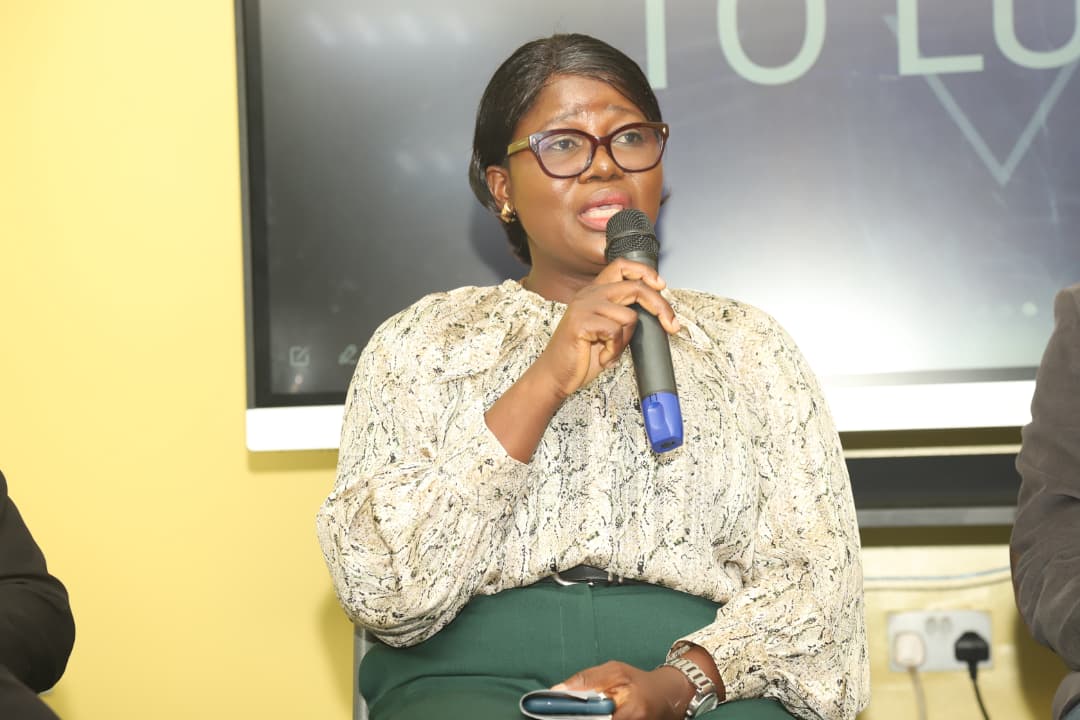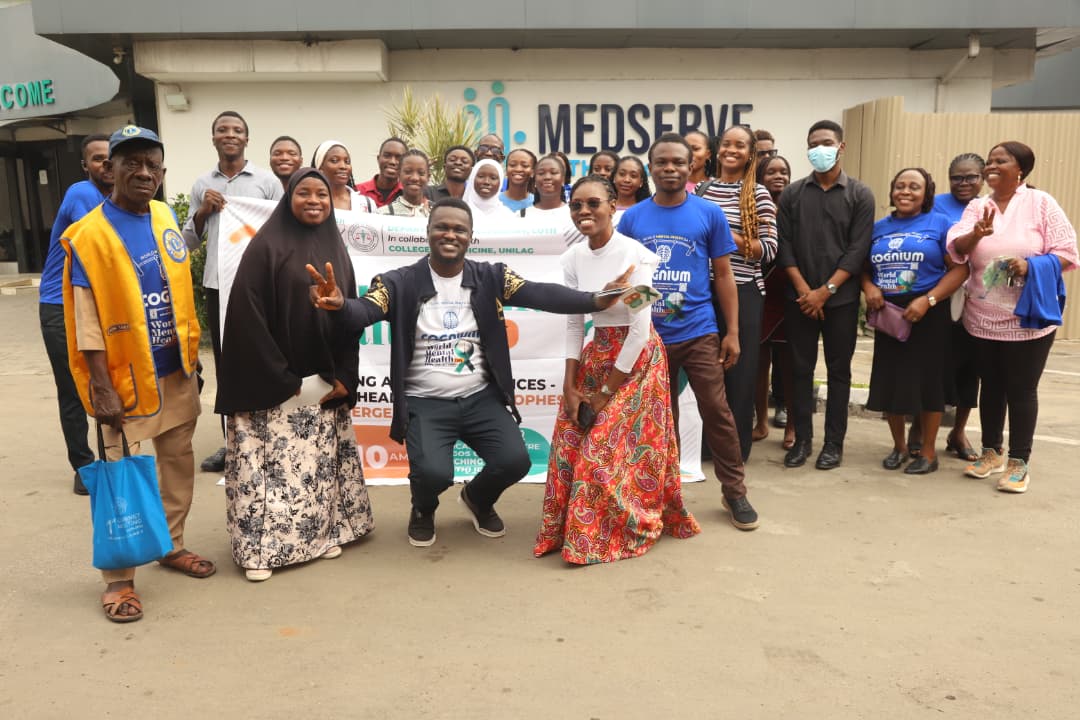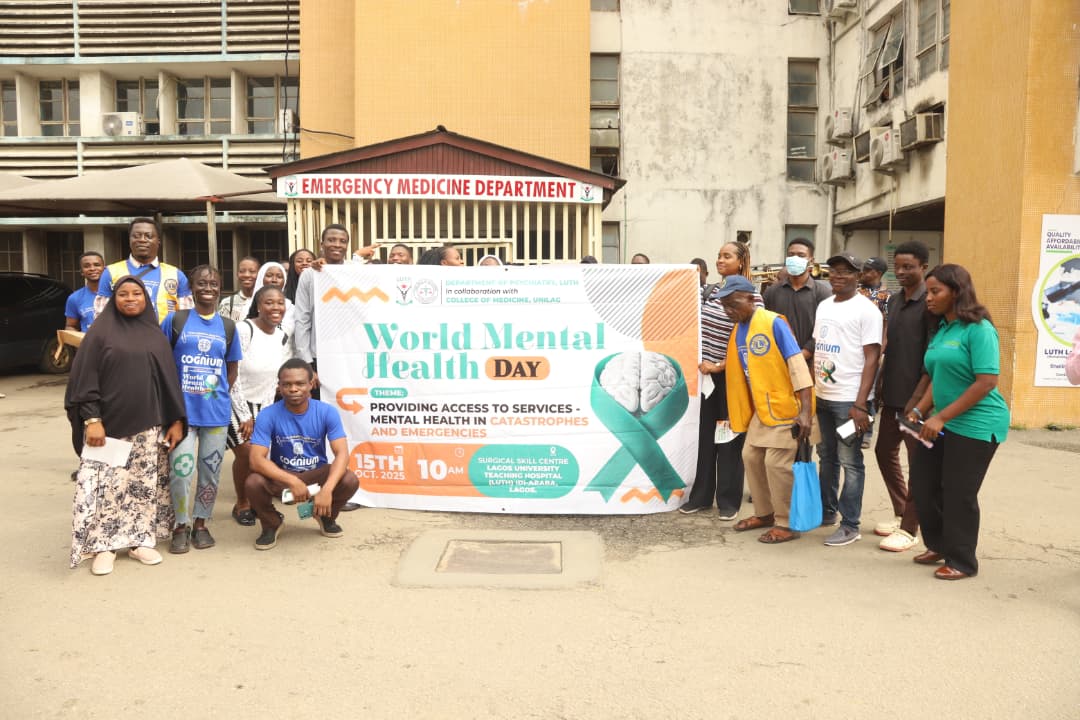
The Department of Psychiatry, Lagos University Teaching Hospital (LUTH), joined the rest of the world to commemorate World Mental Health Day 2025, themed “Providing Access to Services — Mental Health in Catastrophes and Emergencies.”
The event opened with a welcome address by Dr. Fatiregun, who highlighted the growing recognition of mental health issues compared to previous years. He noted that while discussions around mental health have increased, a significant gap in understanding still exists, as many people wrongly assume mental health conditions are limited to those living on the streets. He stressed that even among the educated, awareness remains low. Dr. Fatiregun emphasized that World Mental Health Day provides a platform to learn, unlearn, and relearn, urging everyone to continue engaging in conversations that promote awareness and empathy.
The Head of the Department of Psychiatry, Prof. O.F. Aina, in his opening remarks, expressed appreciation to LUTH Management for its continued support. He welcomed staff, students, and guests, noting that the celebration goes beyond awareness, it is about championing the welfare and dignity of patients, especially those navigating emotional or psychological distress.
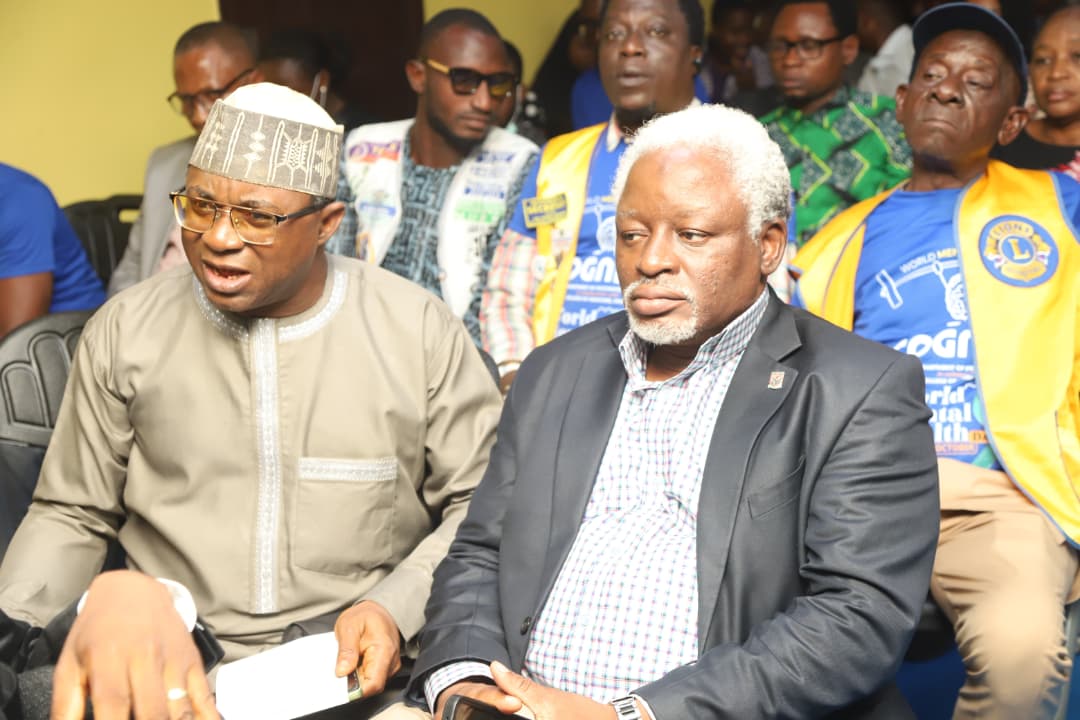
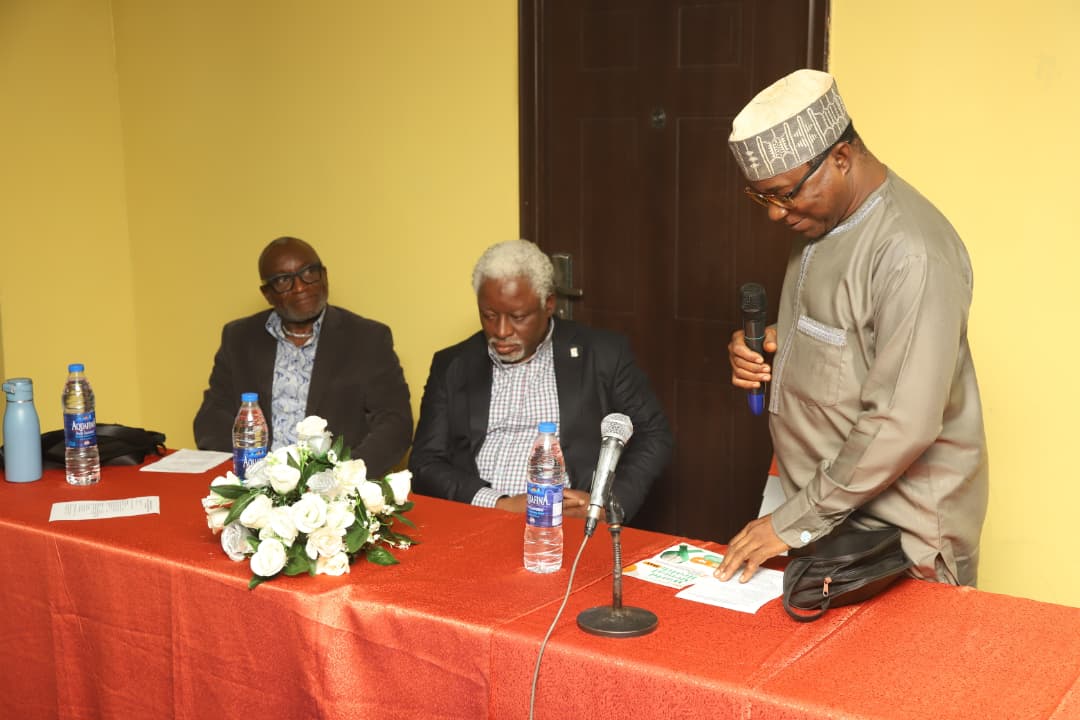
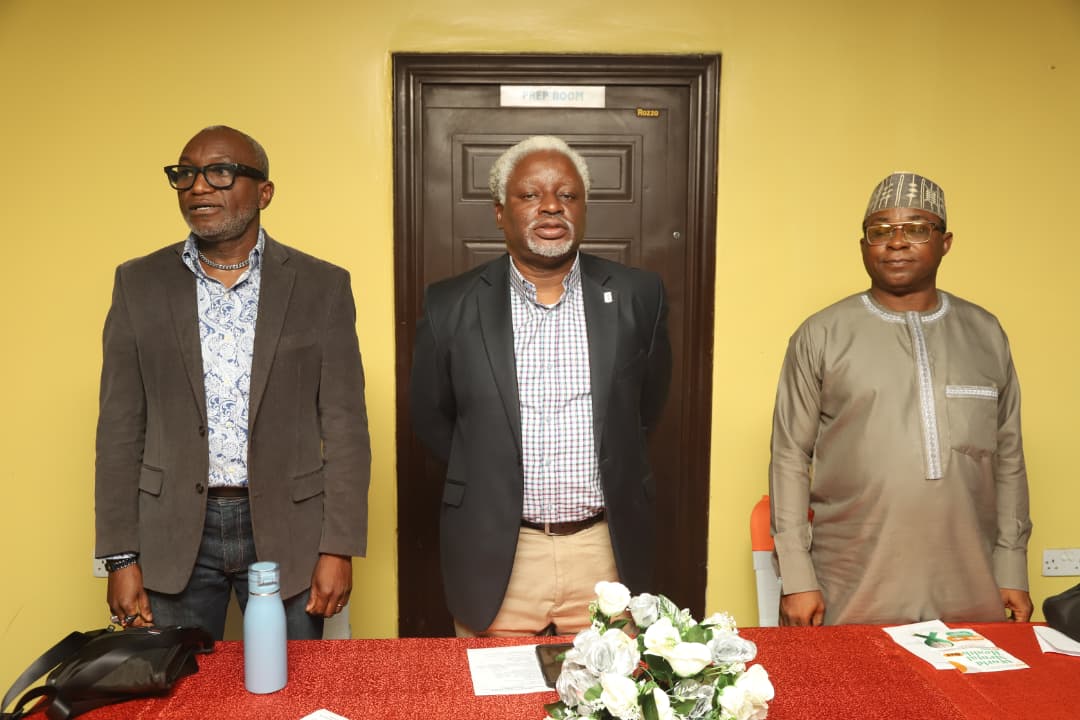
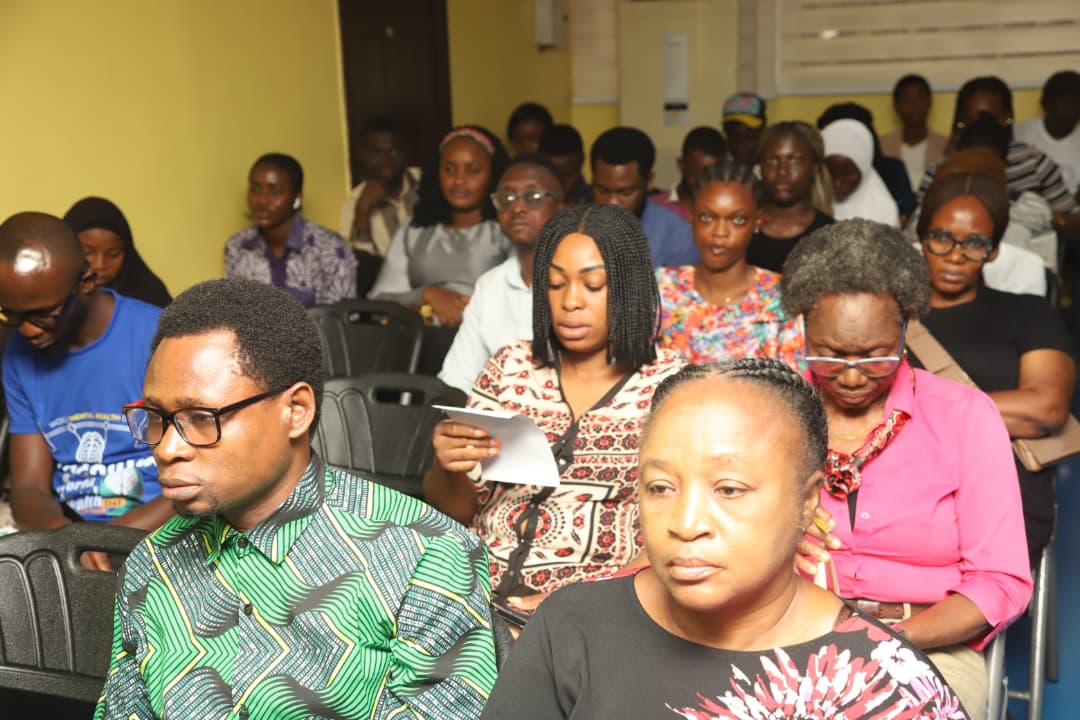
Following this, Prof. Aina delivered a brief but impactful talk on Understanding the Theme of World Mental Health Day 2025. He defined mental health as a state of emotional, psychological, and social well-being that influences how individuals think, feel, and act. He explained that stigma and fear of judgment discourage many from seeking help, leading to delayed treatment and worsening symptoms. He stressed that providing timely access to mental health services especially during emergencies and catastrophes is essential for prevention, recovery, and resilience. He also addressed the growing prevalence of anxiety disorders, noting that many people live with distress and sleeplessness while maintaining their daily routines. He concluded by reaffirming that mental health is real, and reaching out for help is a sign of strength, not weakness.
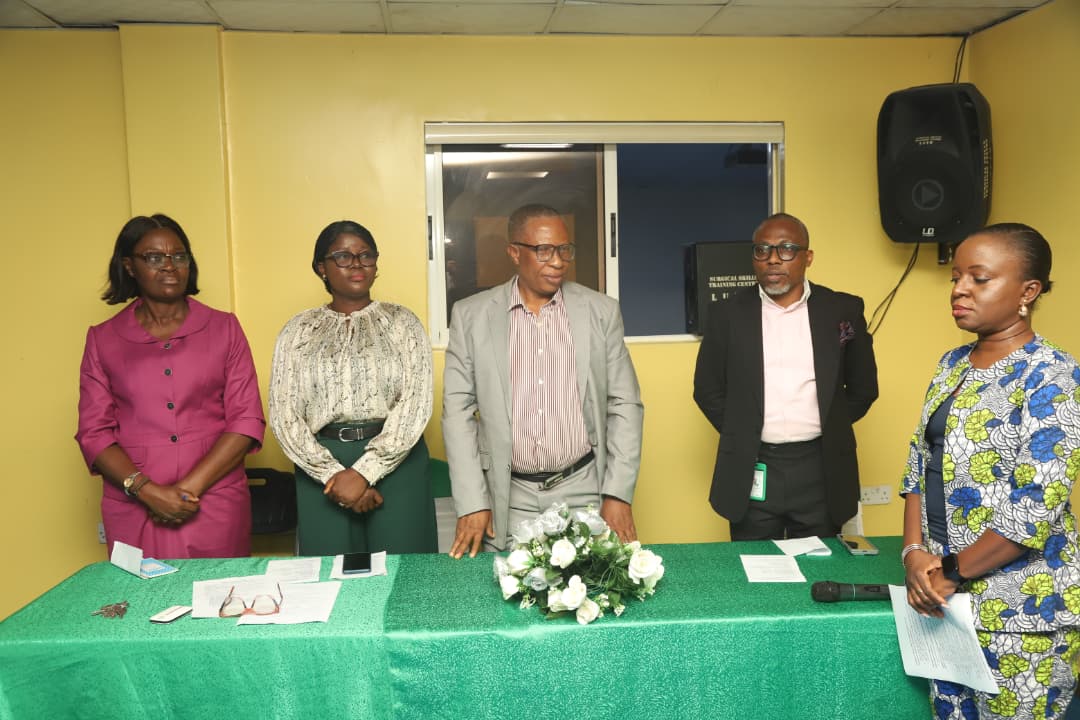
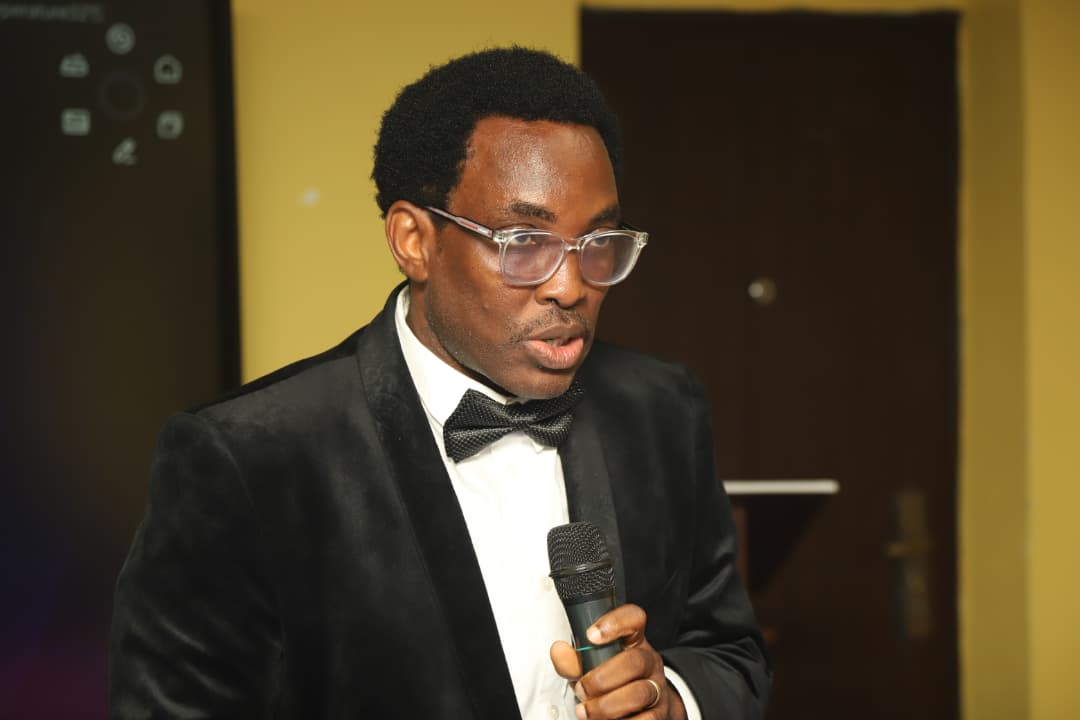
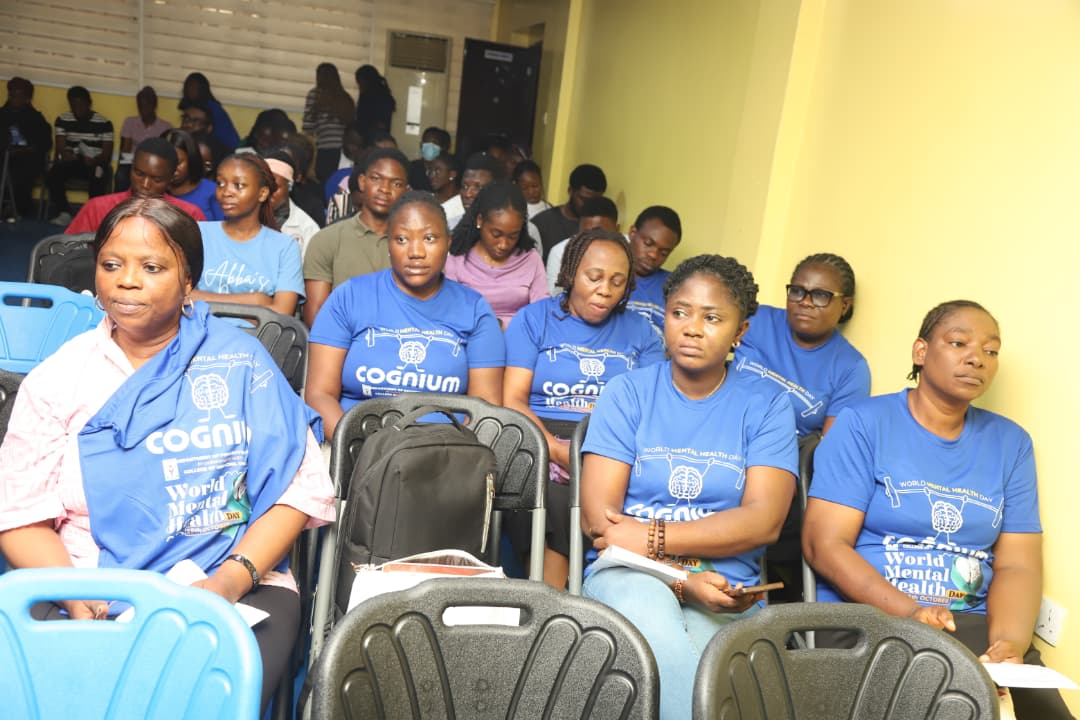
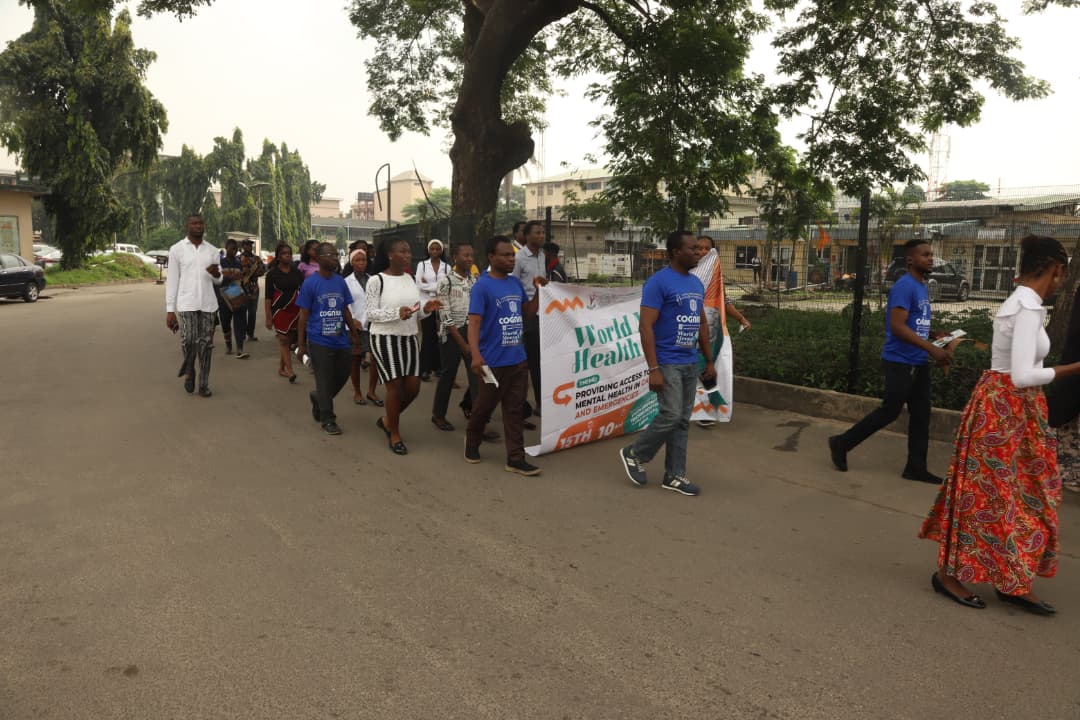
The event continued with the introduction of panelists, each bringing unique expertise and perspective to the conversation:
• Psychiatrist – Dr. Temilade Adegbite
• Clinical Psychologist – Dr. Charles Umeh
• Emergency Physician – Dr. Babayemi Osinaike
• Psychiatric Nurse – DDNS Remi Lawal
• Family Advocate – Mr. Rotimi Ashley-Dejo
Dr. Temilade Adegbite addressed the role of institutions in promoting mental health support, highlighting how schools, workplaces, and communities can foster awareness, reduce stigma, and encourage early intervention. She called for stronger structures that make mental health services accessible and inclusive at all levels of society.
Dr. Charles Umeh began by citing the World Health Organization (WHO) definition of mental health as “a state of well-being in which every individual realizes his or her own potential, can cope with the normal stresses of life, can work productively, and is able to make a contribution to the community.” He explained that this definition reminds us that mental health goes beyond the absence of mental illness, it is about living a balanced, fulfilling life. He spoke about the growing challenge of emotional regulation and chronic stress, particularly in Lagos’ fast-paced environment, where long commutes, job pressure, and social expectations contribute to anxiety and burnout.
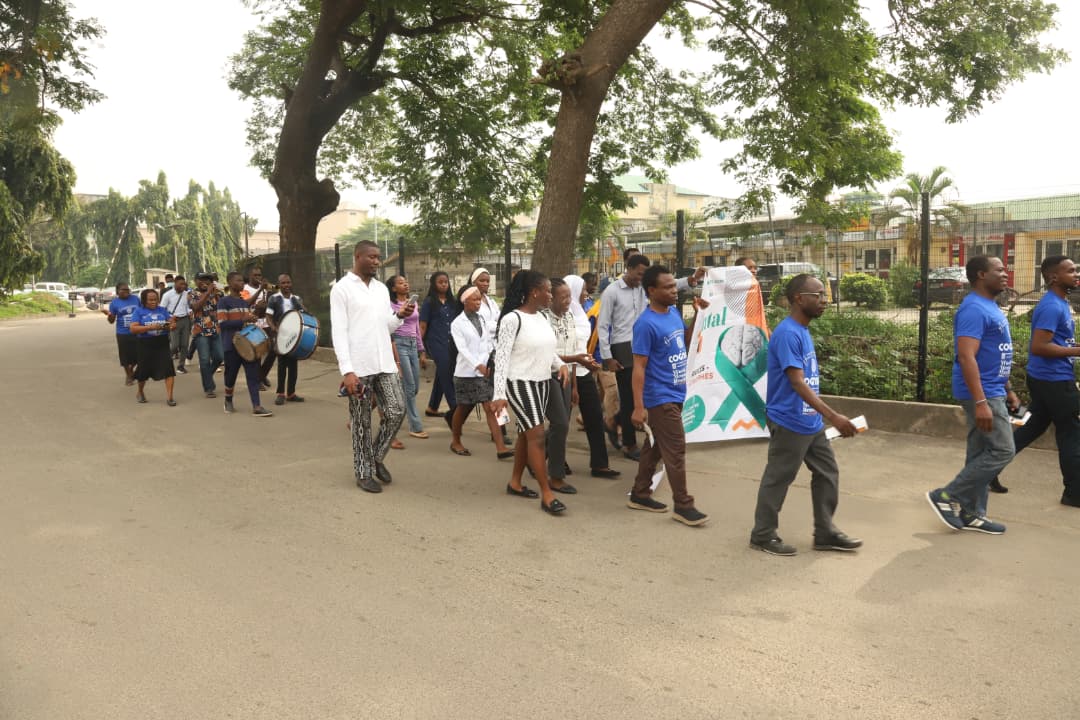
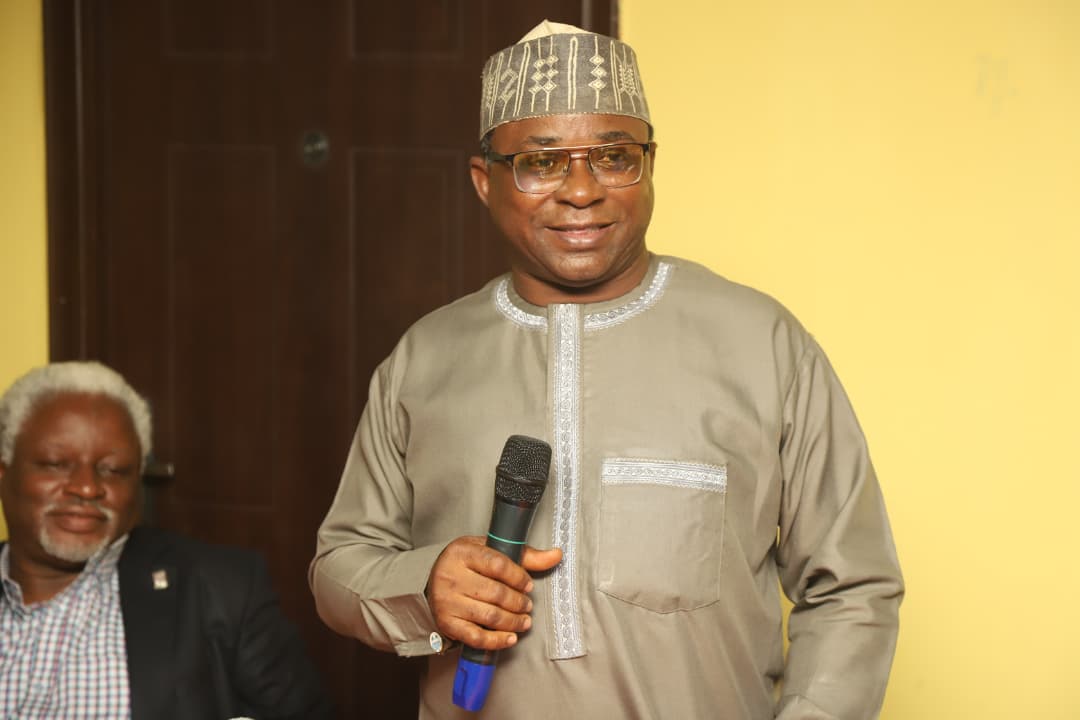
Dr. Umeh noted that the COVID-19 pandemic increased mental health awareness, inspiring initiatives to train religious leaders and primary healthcare workers in basic counselling and early identification of mental health issues. He also emphasized the need to pay attention to children’s mental health, explaining that early exposure to trauma, academic pressure, and family instability can have lasting emotional effects. He urged parents, teachers, and caregivers to recognize behavioural changes and early warning signs, stressing that early intervention and supportive environments are essential for raising emotionally resilient children.
Dr. Babayemi Osinaike discussed the realities of psychiatric emergencies and the challenges faced in emergency departments due to stigma, limited resources, and inadequate planning. He called for improved triage systems and closer collaboration between psychiatric residents and emergency staff to ensure holistic and timely patient care.
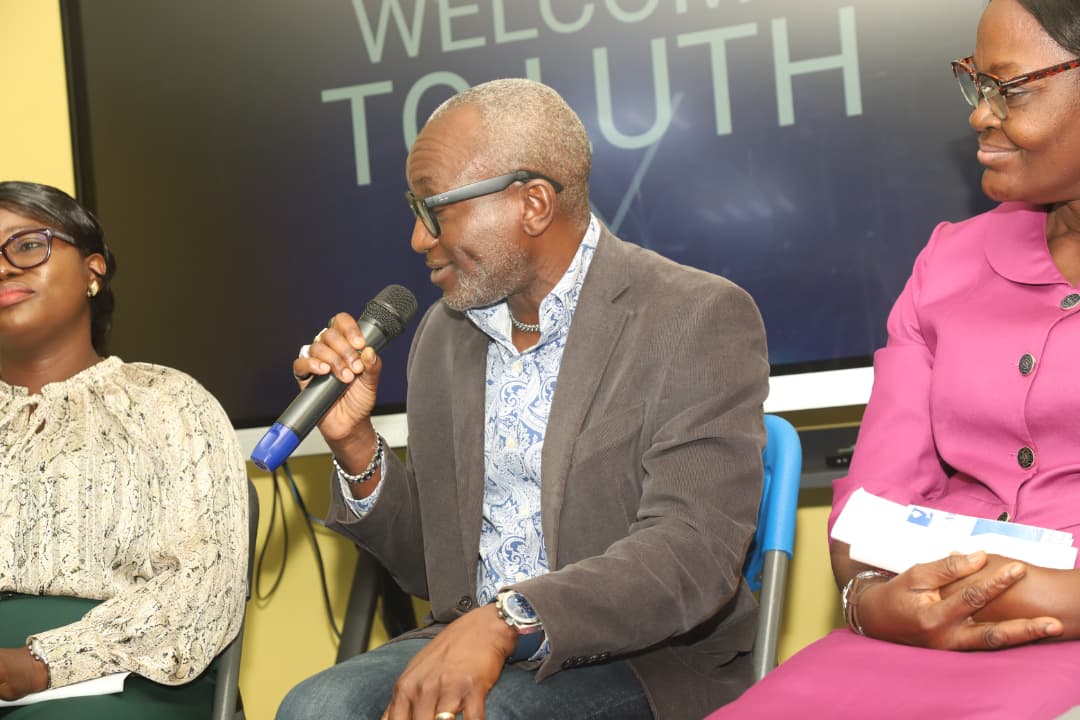
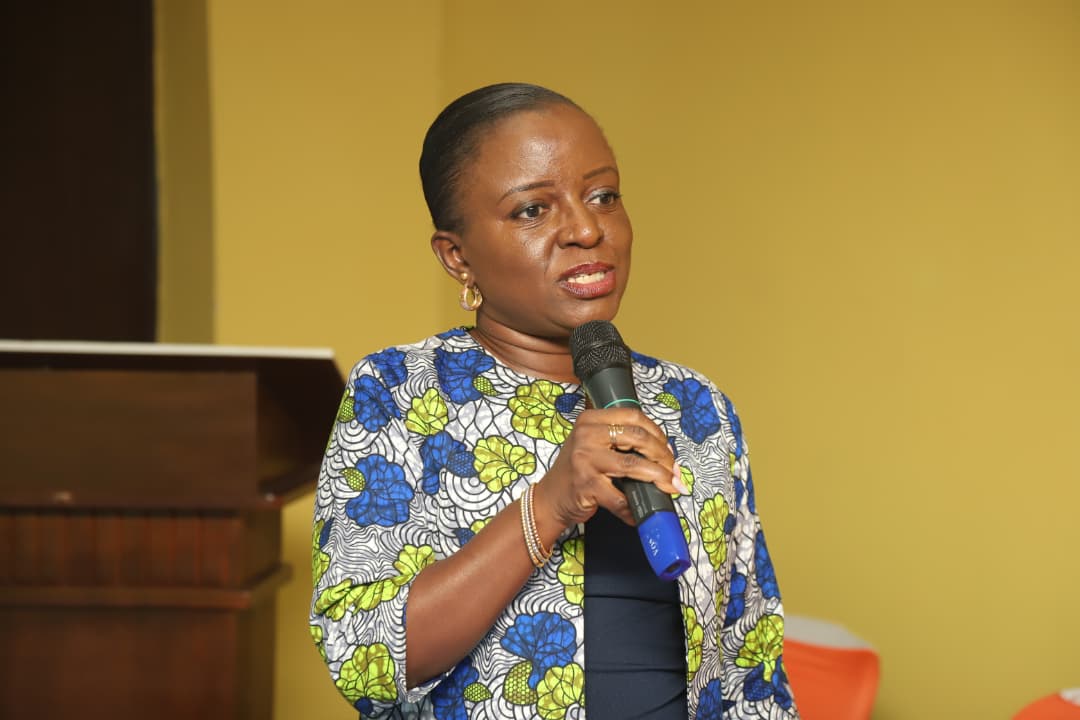
DDNS Remi Lawal emphasized the importance of de-escalation techniques and therapeutic communication in managing agitated patients. She highlighted confidentiality, empathy, and patient education as key aspects of effective care, noting that trust and understanding significantly enhance treatment outcomes.
Mr. Rotimi Ashley-Dejo concluded the panel with a heartfelt testimonial about living with depression for several years and his journey to recovery. His story emphasized the importance of empathy, family support, and non-judgment, reminding participants that mental health challenges can affect anyone, regardless of background or status. He shared that his experience inspired him to become an advocate for mental health awareness and to speak out against the stigma surrounding it, encouraging others to seek help and support those in need with compassion.
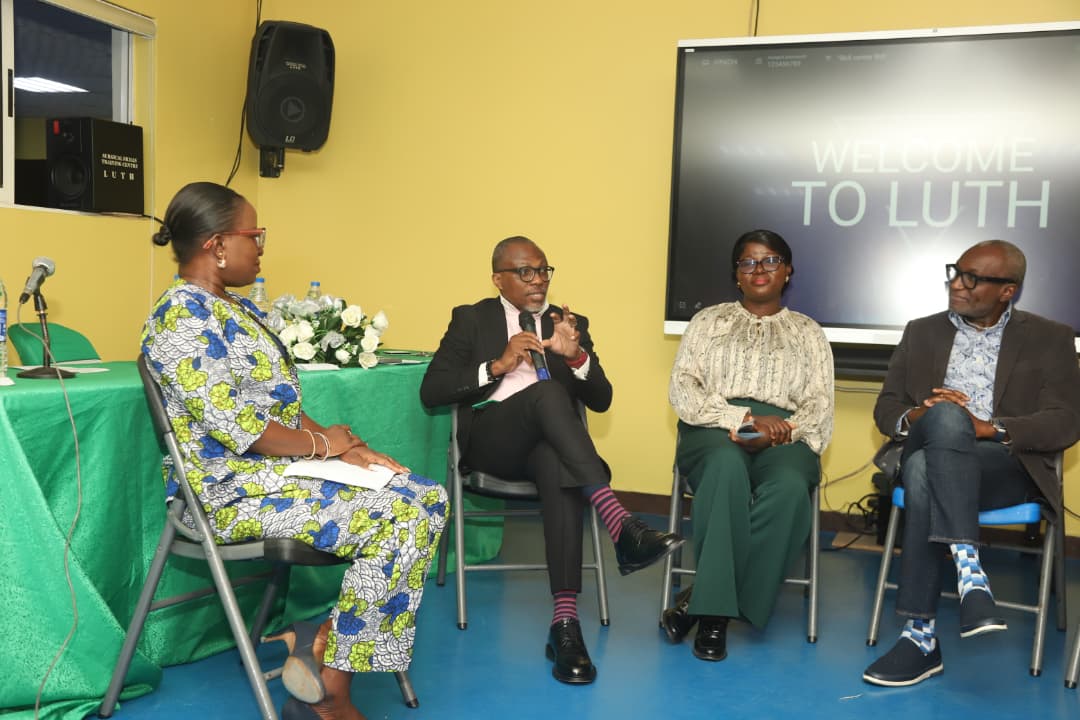
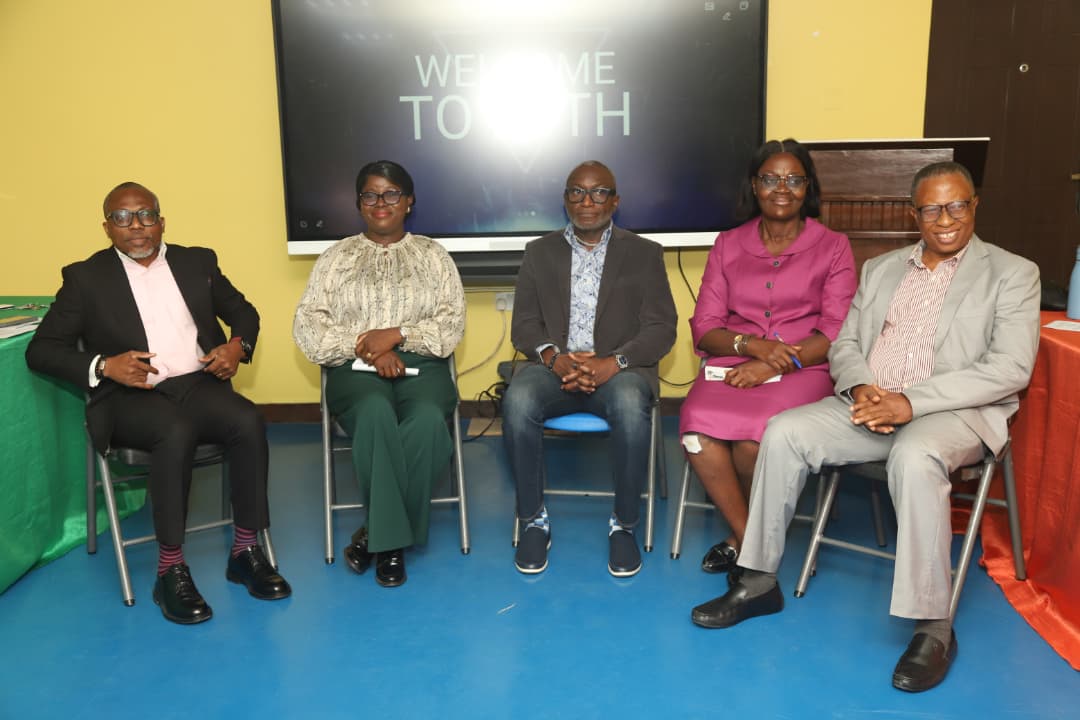
As the session drew to a close, participants reflected on the need for ongoing collaboration between healthcare professionals, advocates, and policymakers. The discussion reinforced that improving mental health care requires empathy, education, and systems that ensure timely access to services, especially in times of catastrophe and crisis.
World Mental Health Day 2025 at LUTH served as a powerful reminder that mental health is integral to overall well-being. The event inspired participants to work together toward a society where mental health is prioritized, stigma is dismantled, and care is accessible to all. Through collective effort, compassion, and awareness, LUTH continues to champion the cause of mental wellness, and ensuring that every individual feels seen, supported, and cared for, even in moments of crisis.
